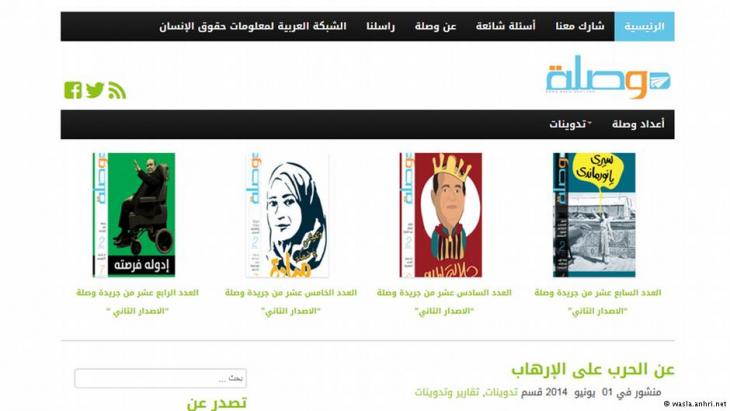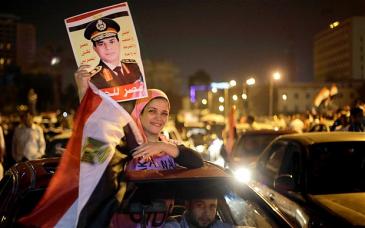A warning shot for civil society

Were you surprised at the confiscation of "Wasla" magazine, and how do you explain the heavy-handed actions of the security forces?
Gamal Eid: I wasn't really surprised. In view of recent developments in Egypt, we had to expect repressive measures like these. But that it happened so fast, that did surprise us. Generally we can say that the new rulers are intent on dealing a blow to all civil society organisations, because these are critical of the injustice and tyranny that prevail in this nation. The new president apparently wants to silence all critics at the start of his tenure.
Then there is the fact that the security forces are seeking revenge on the Arab Network for Human Rights Information" (ANHRI) for its role in the promotion of democracy in Egypt.

Do you think that particular articles in the seized edition of "Wasla" could be one of the reasons for this move?
Eid: "Wasla" magazine, which has been published since 2010, publishes a variety of articles by young writers and activists from all political camps; pieces that were previously available online. We select a number of interesting articles and publish them at irregular intervals in a printed edition, so that they can also be accessed by the older generation, who may not be so Internet-savvy. I think the magazine makes an important contribution to the promotion of inter-generational dialogue in Egypt.
The confiscated edition of "Wasla" contains articles that support neither the Muslim Brotherhood nor the new regime. One example is an analysis of the "Sisi phenomenon" from a sociological perspective. In another article, the author explains why he supports Abdul Fattah al-Sisi.
"Wasla" also publishes articles on other subjects, for example on the subject of "Love on the Internet", Ramadan celebrations or what's been dubbed "ElBaradei fever". So we cover a broad range of political and social issues.
What accusations have been levelled at you exactly?
Eid: The security authorities accused us of not having official permission to publish. But that's wrong, because "Wasla" has been registered with the authorities since 2010.
They also claimed that "Wasla" is involved in plans to overthrow the government, which is totally ridiculous because the seized edition went to press before Sisi took power, not to mention the fact that this particular edition of "Wasla" also contains articles taking a clear position in favour of Sisi as Egypt's new president.
But the most absurd accusation levelled at us by the security forces is that "Wasla" is owned by the Muslim Brotherhood. If you ask me, this is just laughable. All staff at the Arab Network for Human Rights Information are secular and belong to various left-wing or liberal movements.
How do you now plan to fight these restrictions?

Eid: We'll ensure that state prosecutors receive some back issues of "Wasla", to show that as the voice of our human rights initiative, "Wasla" is a political, but also an independent publication campaigning for press freedom and freedom of expression. We have neither called for the government to be toppled, nor have we worked with the Muslim Brotherhood. There is no substance to these accusations.
Do you view the action against "Wasla" as a clear warning shot for yours and other civil society organisations?
Eid: Yes, absolutely. The security forces' conduct towards "Wasla" is clearly a warning for all human rights organisations doing serious work in Egypt. It is likely that this move could mark the start of a campaign of suppression of civil society by the new Egyptian leadership.
Interview conducted by Abbas Al-Khashali
© Qantara.de 2014
Translated from the German by Nina Coon
Editor: Aingeal Flanagan/Qantara.de
Gamal Eid is a lawyer and human rights activist. He used to be a member of the Kifaya protest movement.
